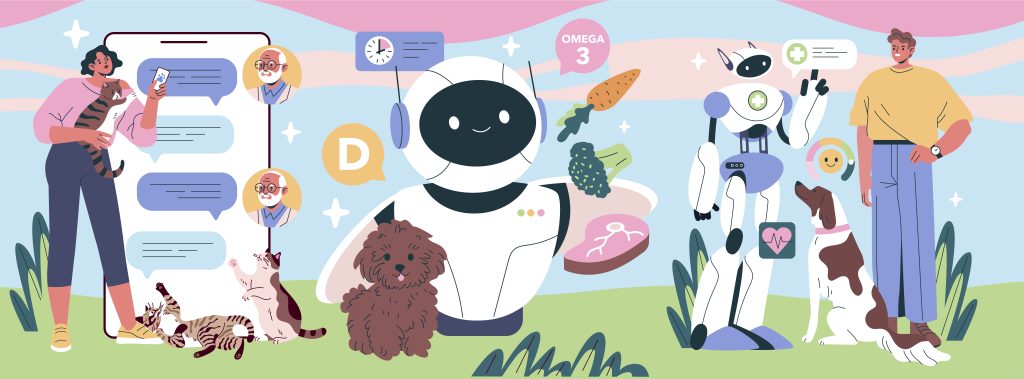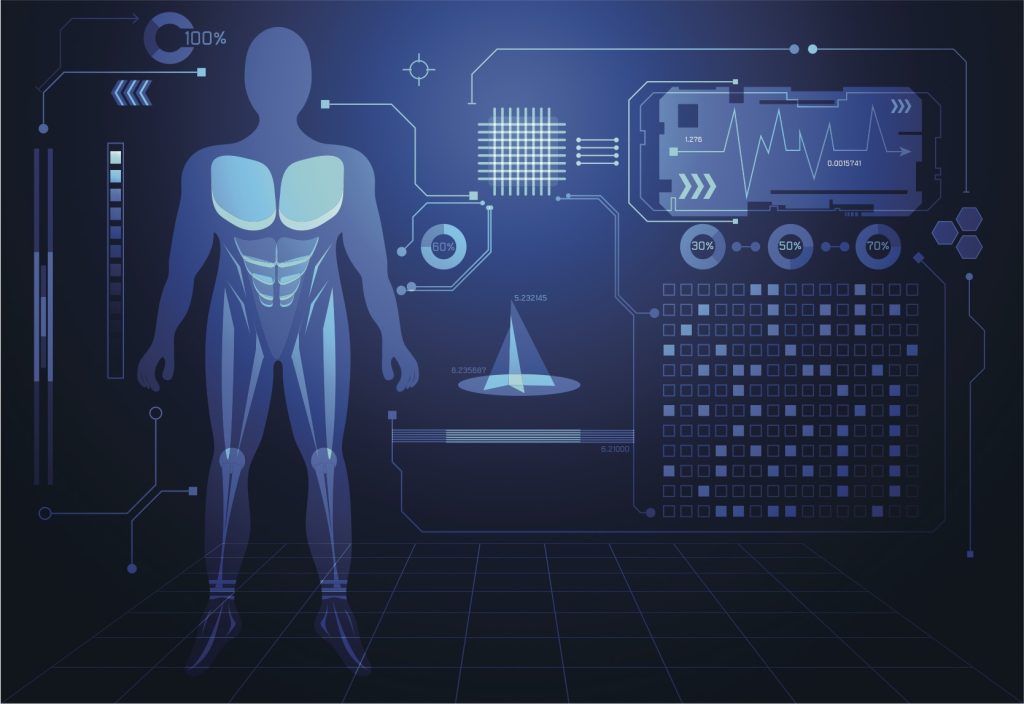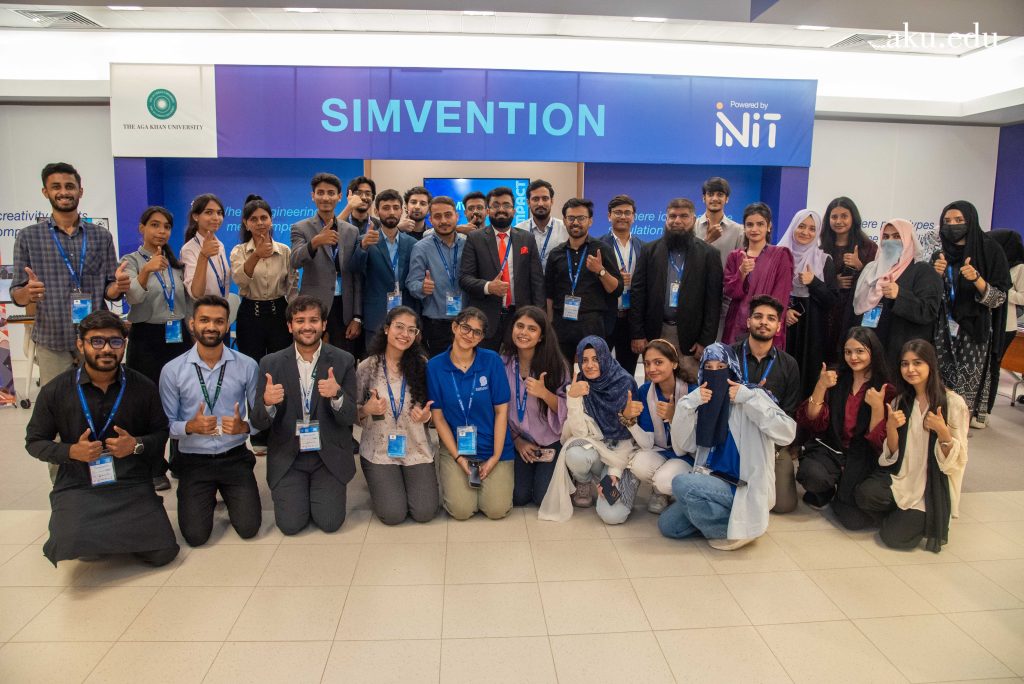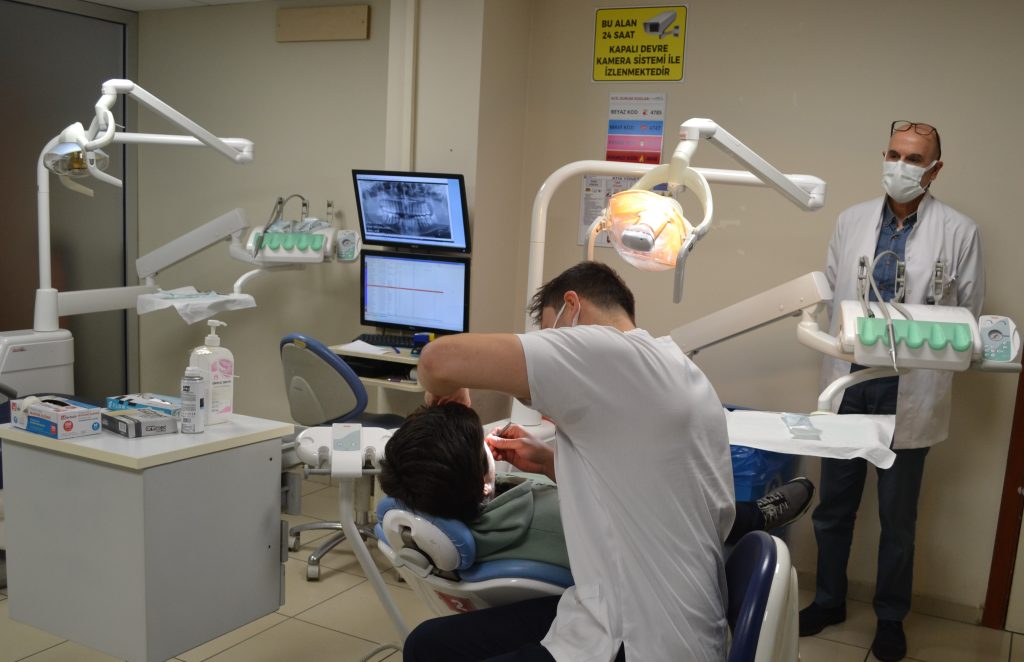Artevelde University’s ViCoSim initiative leverages virtual reality to enhance healthcare professionals’ communication skills. By providing 360° video VR scenarios, ViCoSim overcomes logistical challenges of traditional simulations, offering scalable, cost-effective, and flexible training. It fosters interdisciplinary and intercultural learning, improving knowledge retention and clinical reasoning, and preparing students for real-world healthcare scenarios. Read the article to learn more
In an era when technology is transforming the educational sector and simulation-based learning has demonstrated its efficacy, Artevelde University‘s ViCoSim initiative stands out as a model of innovation, introducing a virtual reality (VR) e-simulation module to enhance the communication skills of healthcare professionals. This innovative program not only modifies and enhances current educational opportunities but also spearheads the development of a novel method for fostering interdisciplinary and global skills development.
The evolution of simulation education
The use of high-tech full-body manikins and simulated actors in healthcare simulation training has evolved over the years. These technologies are now used to train both technical and non-technical skills, such as communication and leadership. However, each method had its own set of limitations. While manikins and task trainers are highly effective for training in practical procedures, they are not always the most suitable for training in interpersonal skills. On the other hand, simulated actors provided a more realistic communication experience, but their use was limited by ethical concerns regarding the scope of technical actions they could perform.
The implementation of simulation training using simulated actors has historically faced significant logistical challenges. Coordinating schedules, securing suitable training facilities, and managing the availability of trained actors are formidable tasks for educational institutions. The logistical complexities of staging realistic scenarios with simulated patients often result in high costs and time constraints, making it challenging to incorporate actor-based simulation into the standard curriculum for large groups of students.

In contrast, the use of VR in simulation education provides a notable advantage in addressing these logistical challenges. VR eliminates the need for physical space and complex scheduling coordination, offering a flexible and accessible solution. Learners can engage in immersive simulations from any location, eliminating geographical limitations and integrating simulation training into the curriculum. This not only reduces the logistical burden but also enhances the scalability and sustainability of simulation education initiatives.
Furthermore, the cost-effectiveness of VR compared to traditional simulation setups makes it a practical choice for institutions with limited resources. Furthermore, clinical virtual simulation has demonstrated efficacy in enhancing knowledge retention, clinical reasoning, and overall student engagement. Furthermore, VR simulation provides a secure environment for training communication skills, which is often neglected in traditional methods. The ability to conduct VR simulations without the need for specialized equipment or dedicated space ensures that a wider range of students can benefit from this training approach, thereby democratizing access to high-quality healthcare education.
ViCoSim: Immersive Virtual Reality Scenarios
The Department of Health and Care at Artevelde University of Applied Sciences has taken advantage of the opportunity to create 360° video VR scenarios, funded by the European Union and the East Flanders district. Our team, comprising communication and simulation experts and a technical specialist, has produced over 35 scenarios with 360° videos.

The ViCoSim project introduces 360° video VR scenarios, which present realistic cases for training communication skills. These scenarios are facilitated by trained instructors and are designed to enhance the effectiveness of communication skills training. These simulations are structured in a branching format, allowing them to adapt to the choices made by students or instructors. The didactically crafted framework, based on the PEARLS method, ensures a cohesive learning experience from any location, whether guided by a facilitator or supervised by peers. The ViCoSim platform is currently being implemented across seven healthcare programs, including nursing, midwifery, occupational therapy, podiatry, audiology, speech therapy, and oral hygiene. It has transformed traditional simulation education into a virtual reality format.
Simulating communication skills in a virtual environment is an innovative approach that has proven to be highly effective. By offering standard scenarios filmed in 360° video, students are exposed to realistic situations where their choices lead to different outcomes. The guided debriefing process, which utilizes the evidence-based PEARLS methodology, is a crucial element of the learning journey. It encourages reflective learning through self-reflection, facilitates exploration, and provides directive feedback.
ViCoSim is not simply an adaptation; it is an expansion of the existing simulation education program. We have incorporated it into our curriculum at Artevelde University as a Zone 2 simulation, in accordance with the SimZone framework for large groups of students, as a preliminary step towards the Zone 3 simulations conducted in smaller groups. This reduces costs while adequately preparing students for simulations with simulated actors at a later stage in their program. By leveraging the advantages of VR, learners gain a competitive advantage in real-world scenarios. The project’s key benefits include:
- This approach better prepares learners for real-world situations, fostering competence and familiarity.
- Improved knowledge retention and clinical reasoning.
- This provides an enhanced and attractive learning experience for students.
Beyond Borders: Interdisciplinary and Intercultural Learning
ViCoSim is not only a revolutionary new approach to simulation education, but also a catalyst for interdisciplinary and intercultural learning. In collaboration with Stellenbosch University in South Africa, ViCoSim is extending its reach globally through a Collaborative Online International Learning (COIL) initiative titled “Person-Centered Communication in an International Context.” A scenario set in a South African context, filmed with a 360° camera, allows Belgian students to develop their intercultural and international competencies without leaving their country.
This virtual bridge also enables students at Stellenbosch University to participate in the same scenario as their counterparts at Artevelde University. The debriefing session brings together the students from different cultural backgrounds, facilitating the identification of transcultural differences and fostering insightful discussions, thereby enhancing the learning experience.
For students participating in the COIL experience within Project ViCoSim, it has been an enlightening experience. The initiative has enabled participants to gain an appreciation for the richness of cultural diversity, to acknowledge differences in norms and values, and to foster a genuine openness towards one another. By working with colleagues from a variety of backgrounds, they proactively sought and embraced diverse viewpoints on specific topics and themes, thereby enhancing their understanding of global perspectives. Gaining insight into the healthcare systems of other countries provided a real-world context, offering practical insights beyond theoretical knowledge.
Embracing the reality of making mistakes, they discovered that these moments served as powerful learning experiences, contributing to their personal and professional growth. Furthermore, observing and learning from our colleagues’ distinctive communication styles enhanced their cross-cultural comprehension, fostering a dynamic and inclusive learning atmosphere.
Conclusions
In conclusion, Project ViCoSim demonstrates the transformative potential of virtual reality in healthcare education. It not only enhances the communication skills of future healthcare professionals but also fosters interdisciplinary and intercultural understanding in an increasingly interconnected world.
Project ViCoSim offers a valuable learning opportunity for students and provides a pathway for continuous professional development for healthcare professionals. This innovative educational format is available for training healthcare professionals, allowing the use of both existing and newly created scenarios. The platform offers professionals the flexibility to immerse themselves in realistic situations relevant to their field. Whether the objective is to enhance communication skills, practice complex medical procedures, or train in other aspects of patient care, ViCoSim enables healthcare professionals to refine their communication skills in an efficient and effective manner. The capacity to devise new scenarios also allows for the simulation of particular scenarios pertinent to the most recent developments in healthcare. This ensures that professionals remain abreast of the latest practice guidelines and protocols. For further information about this project, please contact Dieter Vyt at dieter.vyt@arteveldehs.be.
READ ALSO













































